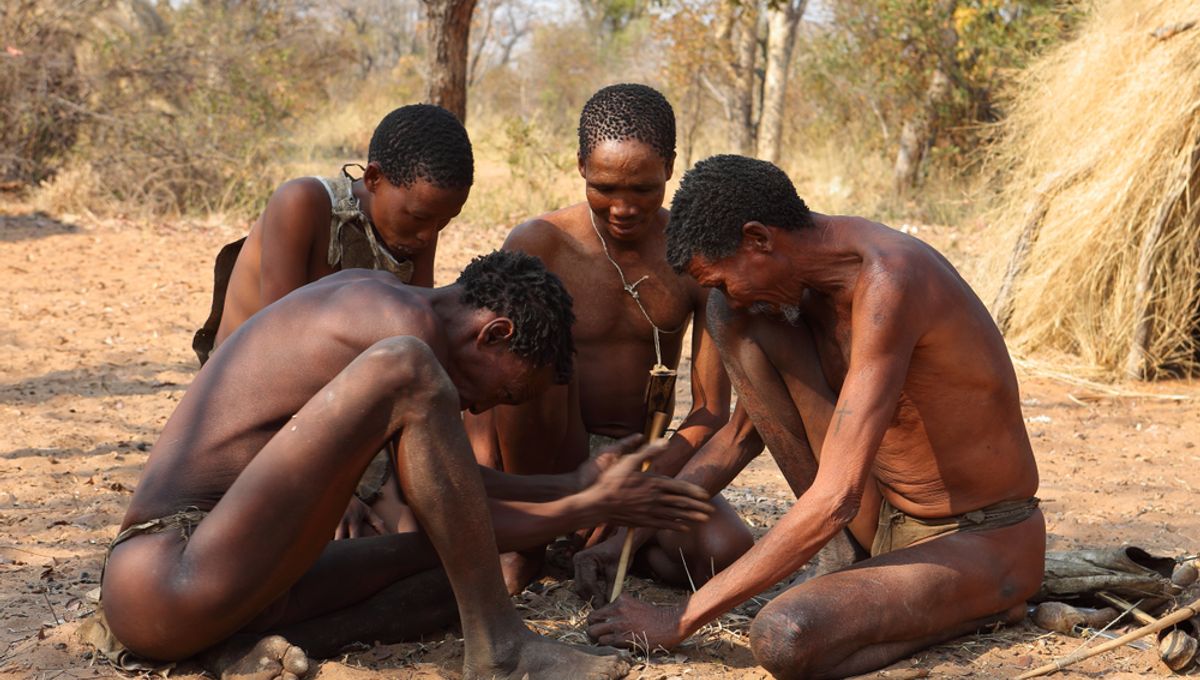
Population genetics indicates that ancestors of modern humans were split into three populations, that only occasionally interbred, for hundreds of thousands of years. These groups then partially recombined to create the humanity that lives today. This places the division and reuniting long before Homo Sapiens’ great migration out of Africa.
The human family tree is often said to more closely resemble a bramble bush, with branches diverging and reuniting, than the straight-trunked descent like the biblical line of begats. The saying usually refers to our relationship with extinct human species such as the Denisovans, but may also be true of Homo Sapiens’ own deep history.
Various models have been presented to explain the genetic similarities and differences seen between human populations. Using the recent sequencing of the entire genomes of 44 Nama (Khoe-San) from southern Africa, a new paper offers a model that suggests even while they shared a continent humanity consisted of distinct lineages.
The genus Homo evolved in Africa, but spread into Asia and Europe some 2 million years ago, spawning many breakaway species. Despite evidence of occasional incursions into the Middle East, Homo sapiens (modern humans) stayed in Africa until an estimated 50-80,000 years ago. The picture of H. sapiens’ evolution prior to that is murky, however.
It’s easiest to imagine a specific region of origin, followed by expansion across the continent. However, the presence of fossils with apparently modern features dating to similar times in Morocco, Ethiopia, and South Africa undermines this. Instead of a single cradle of humanity, alternative models propose we evolved in parallel across the continent, with enough interbreeding to keep us all on the same path.
Complicating matters, a “ghost lineage” has been proposed based on genetic studies. This proposes interbreeding with an archaic human African species, but unlike in the case of Neanderthals and Denisovans genes in Eurasia, we have no clear fossil record of these people.
Dr Aaron Ragsdale of the University of Wisconsin-Madison and co-authors argue the ghost lineage models make an assumption of a single origin H. sapiens and neglect much of Africa’s modern genetic diversity. They instead considered both single and multi-origin models, while studying the genomes of 290 people from Africa and Eurasia, including the previously overlooked Nama.
All four models indicated the Nama largely diverged from other African populations 110-135,000 years ago. This does not mean complete isolation – improbable when our ancestors were interbreeding so often with Neanderthals. Nevertheless, gene flow between lineages was limited after the split.
Prior to the Nama’s isolation, the paper proposes the existence of at least three stem lineages, likely located in southern, eastern, and west/central Africa. Each stem was largely, but not completely, isolated from the others from at least 400,000 years ago. Around 120,000 years ago the southern and eastern stems met to form the ancestors of the Khoe-San population, now mostly inhabiting the deserts of southern Africa.
Then, around 100,000 years ago, the eastern and west/central stems had their own recombination, becoming the ancestors of most of the world’s population today, including most Africans and those whose ancestry lies on other continents.
The authors acknowledge the possibility human evolution was even more complex over the period they are studying than the model they present. However, they argue a “weakly structured stem” like this removes the need for ghost lineages from lost species.
The study is published in Nature.
Source Link: Human Lineages Partially Split Before The Migration Out Of Africa